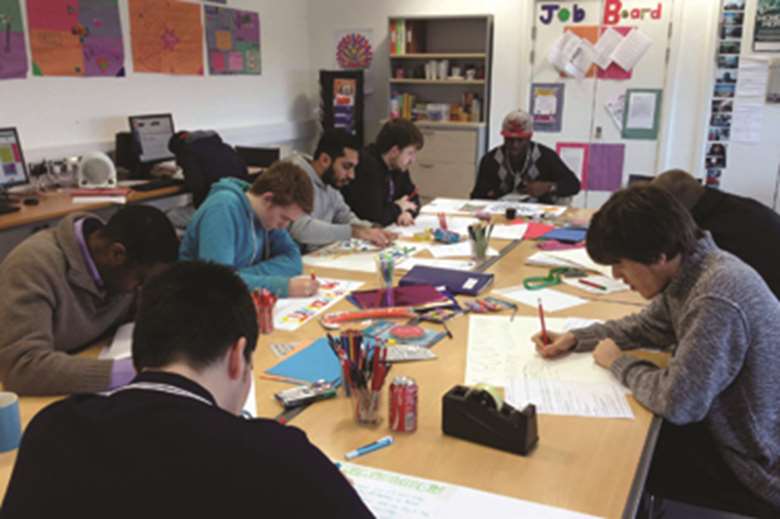Young people brush up digital skills to improve job prospects
Emily Rogers
Monday, September 15, 2014
A new programme helps young people acquire skills that enable them to engage with employers.

Project: Working it Out: A Digital Journeys Programme
Purpose: To help disengaged 16- to 24-year-olds into education, employment or training by tackling digital exclusion
Funding: Working it Out programmes generally cost between £120,000 and £150,000 a year. Around 70 per cent of the funding for this project comes from Barclays
Background: In January last year, employment charity Tomorrow's People published Future Digital Journeys, a report setting out how digital technology can help enhance disadvantaged young people's employability and improve social inclusion.
The research was sparked by the charity's concerns about "digital exclusion" among young people, who were failing to tap into the potential of technology to improve their lives. "Young people use their computers or phones as a substitute for talking to each other, but they're not using it to interact with anyone other than their immediate peer group," says the charity's director of development services, Abi Levitt. "They would never dream of using Google to research a prospective job for example, or set up email alerts about job interviews."
The report concluded there was a need for better digital skills among young people to boost their job prospects and a lack of awareness among them about the need to present a positive online profile for viewing by prospective employers.
So the charity decided to trial a new project with a focus on digital skills based on its successful Working it Out programme, which helps disadvantaged young people across the UK into education, employment or training.
Action: With an estimated youth unemployment rate of nearly 25 per cent, Barking and Dagenham was seen as the ideal location to test the new programme.
Charlene Legg, the project's taskforce leader, hit the streets of Barking to spread the word, making contact with referral agencies such as job centres. This led to the first 12 young people being recruited for the four hours per day, 16-week programme, which started in April last year.
The content of the four courses that have run so far have been tailored to the specific needs and knowledge level of the group. But they have all included sessions to improve participants' digital skills and knowledge of potential tools such as Google to help link them with the employment market. The programme has provided specific projects to help participants put their new skills into practice, through visits to major companies. The courses have also included two days of study each week for a particular qualification, such as BTEC Level 2 in business administration.
Sessions include demonstrating to young people how accessible their social networking profile is to potential employers. "They were encouraged to Google each other and see what they can find," recalls Legg. "They were often horrified at what people can find out, such as inappropriate photos on social media they thought were private."
Barclays has been the major partner in the project and has run sessions at its Canary Wharf headquarters, helping young people with CV writing, covering letters, mock interviews and presentation skills. The company also set young people a digital challenge, which involved doing a research project and presenting their findings to senior management within the banking giant's digital team.
The programme has also included visits to Facebook, where young people were filmed sharing their thoughts about how politicians can reach out to them on social media. They presented a news report on a visit to Sky Studios and they visited Microsoft for an app-making session, which involved presenting new ideas for apps to the senior team.
Outcome: Of the 48 young people who have gone through the first four courses of the programme, 90 per cent have gone onto education, employment or training. Of these, 27 have got into employment, six into education and 10 into training. "This project has been about equipping young people with essential skills and knowledge," says Legg. "Once we have done that we stand back and watch them flourish."
If you think your project is worthy of inclusion, email supporting data to derren.hayes@markallengroup.com




